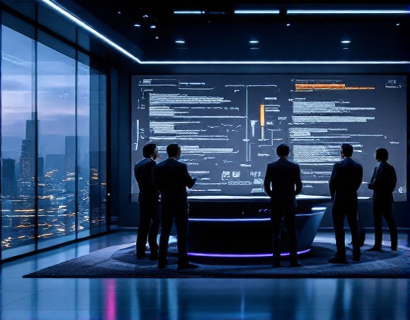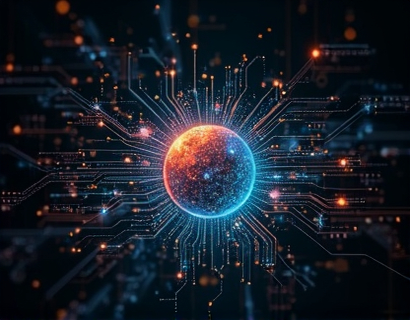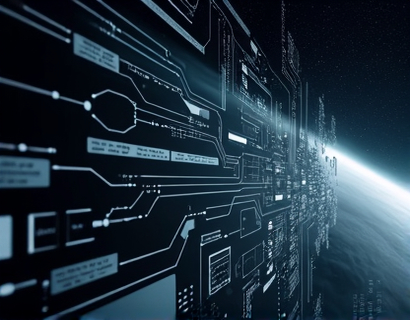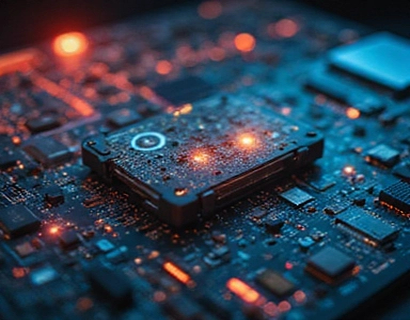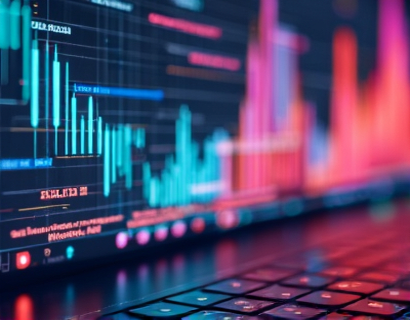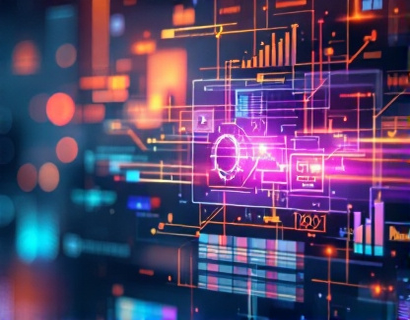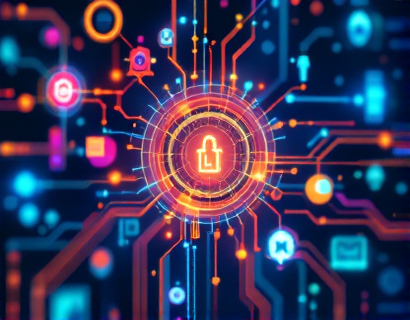The Synergy of AI and Crypto: Revolutionizing Digital Finance
The intersection of artificial intelligence and cryptocurrency is ushering in a new era of digital finance, one that promises unparalleled efficiency, security, and user-centric experiences. This transformative fusion is not just a technological advancement but a paradigm shift that is redefining how we perceive and interact with financial systems. As we delve into this topic, it's essential to understand the foundational elements of both AI and crypto, and how their integration is creating a synergy that is reshaping the landscape of digital finance.
Understanding Artificial Intelligence in Finance
Artificial intelligence, or AI, refers to the simulation of human intelligence processes by machines, particularly computer systems. These processes include learning, reasoning, and self-correction. In the context of finance, AI is leveraged to analyze vast amounts of data, identify patterns, make predictions, and automate complex tasks. The application of AI in finance spans various domains, from algorithmic trading and risk management to customer service and fraud detection.
One of the most significant advantages of AI in finance is its ability to process and analyze big data. Traditional financial systems rely on human analysts to sift through data, which is time-consuming and prone to errors. AI algorithms, on the other hand, can handle massive datasets with speed and accuracy, uncovering insights that would be impossible for humans to detect. This capability is particularly valuable in the crypto space, where market data is vast and constantly evolving.
Cryptocurrency: A Brief Overview
Cryptocurrency, a digital or virtual currency secured by cryptography, operates on a decentralized network known as blockchain. The most well-known cryptocurrency is Bitcoin, but there are thousands of others, each with unique features and use cases. Cryptocurrencies offer several advantages over traditional fiat currencies, including decentralization, transparency, and security. However, they also come with challenges such as volatility, regulatory uncertainty, and scalability issues.
The decentralized nature of cryptocurrencies means that they are not controlled by any central authority, which reduces the risk of censorship and manipulation. Blockchain technology, the underlying infrastructure of cryptocurrencies, ensures that all transactions are recorded in a transparent and immutable ledger. This transparency enhances trust and reduces the need for intermediaries, thereby lowering transaction costs.
AI in Cryptocurrency: Enhancing Trading and Security
The integration of AI into the crypto ecosystem has been transformative, particularly in trading and security. AI-driven trading algorithms can analyze market data in real-time, identify trends, and execute trades with precision. These algorithms can adapt to changing market conditions, making them more effective than human traders in high-frequency trading scenarios. The use of machine learning models, a subset of AI, allows for continuous learning and improvement, further enhancing trading strategies.
Security is another critical area where AI is making a significant impact. Cryptocurrency exchanges and wallets are prime targets for cyberattacks, and the stakes are high. AI-powered security systems can detect and prevent fraudulent activities by analyzing patterns and anomalies in transaction data. Machine learning algorithms can identify suspicious behavior and alert users or administrators in real-time, significantly reducing the risk of breaches.
Smart Contracts and AI: A Powerful Combination
Smart contracts, self-executing contracts with the terms of the agreement directly written into code, are a cornerstone of blockchain technology. When combined with AI, smart contracts become even more powerful. AI can be used to optimize the execution of smart contracts, ensuring that they operate efficiently and securely. For instance, AI can predict potential issues or vulnerabilities in smart contract code, allowing for proactive measures to be taken before deployment.
Moreover, AI can enhance the automation of complex business processes through smart contracts. By integrating AI-driven decision-making, smart contracts can adapt to dynamic conditions, making them suitable for a wide range of applications, from supply chain management to insurance claims processing. This synergy not only streamlines operations but also reduces the need for intermediaries, lowering costs and increasing efficiency.
Personalized User Experiences in Crypto
One of the most exciting aspects of AI in the crypto space is its potential to create personalized user experiences. AI algorithms can analyze user behavior, preferences, and financial goals to provide tailored recommendations and services. For example, a crypto investment platform powered by AI can offer personalized portfolio suggestions based on an individual's risk tolerance and investment horizon. This level of personalization enhances user engagement and satisfaction, making the crypto experience more accessible and user-friendly.
AI-driven chatbots and virtual assistants are also becoming increasingly common in the crypto ecosystem. These tools can provide 24/7 customer support, answer queries, and guide users through complex processes. By leveraging natural language processing, these AI assistants can understand and respond to user requests in a human-like manner, improving the overall user experience.
Challenges and Considerations
Despite the numerous benefits, the integration of AI and crypto is not without challenges. One of the primary concerns is the regulatory environment. Cryptocurrencies are still a relatively new and unregulated asset class, and the introduction of AI adds another layer of complexity. Regulators are grappling with how to oversee AI-driven crypto activities, ensuring compliance with existing laws while fostering innovation. Clear and consistent regulations are crucial to build trust and ensure the sustainable growth of the crypto market.
Another challenge is the technical complexity involved in integrating AI with blockchain technology. Developing robust and secure AI systems that can operate on decentralized networks requires expertise in both domains. There is also the issue of data privacy, as AI algorithms rely on large datasets, which must be handled with care to protect user information. Ensuring that data is anonymized and securely stored is paramount to maintaining user trust.
Future Prospects: The Intelligent Synergy of AI and Crypto
The future of digital finance lies in the intelligent synergy of AI and crypto. As technology continues to advance, we can expect even more innovative applications of AI in the crypto space. One promising area is the development of decentralized AI models, where AI algorithms are trained and run on decentralized networks. This approach can enhance privacy, reduce central points of failure, and democratize access to AI-powered services.
Another exciting prospect is the integration of AI with other emerging technologies such as the Internet of Things (IoT) and 5G networks. The combination of these technologies can create a seamless and interconnected financial ecosystem, enabling real-time transactions, enhanced security, and new use cases that are yet to be imagined. The potential for AI to drive innovation in digital finance is vast, and the next few years will be crucial in shaping this future.
In conclusion, the fusion of AI and crypto is transforming digital finance in profound ways. From enhancing trading and security to creating personalized user experiences, the benefits are numerous. As the technology matures and regulatory frameworks evolve, the intelligent synergy of AI and crypto will continue to redefine the financial landscape, offering exciting opportunities for tech enthusiasts and innovators alike.













